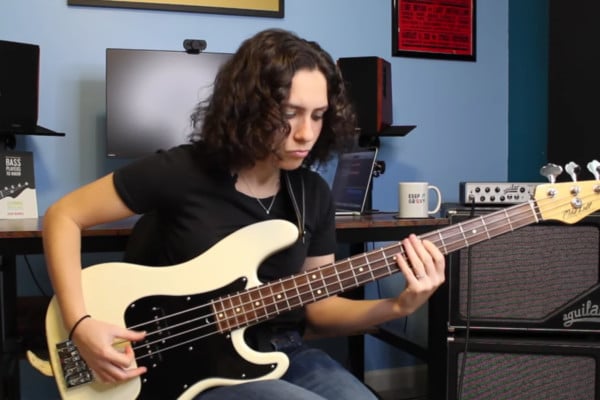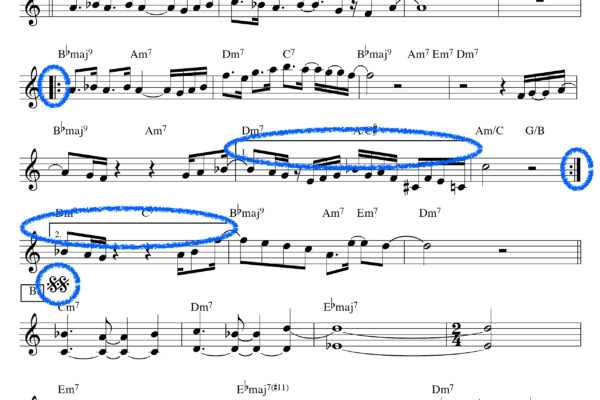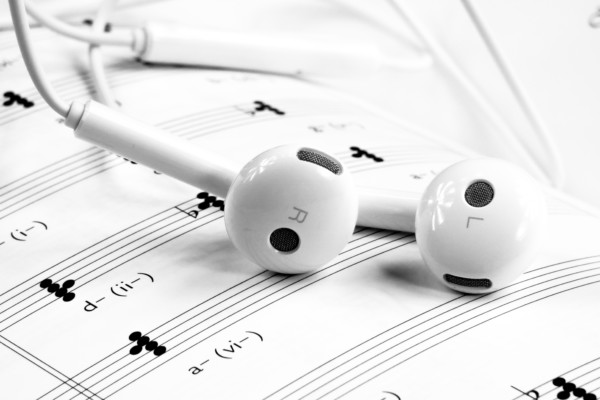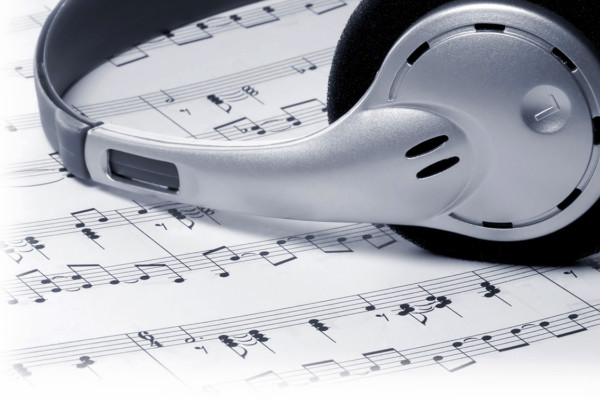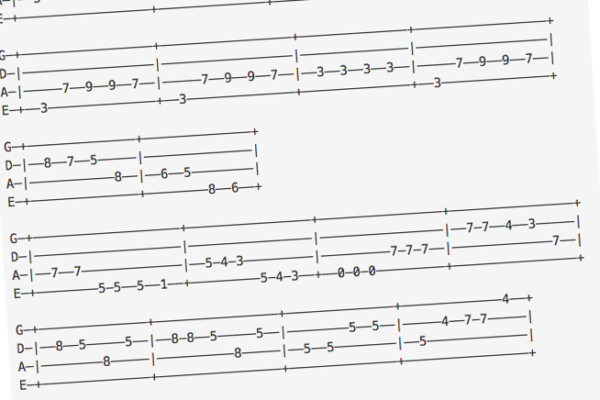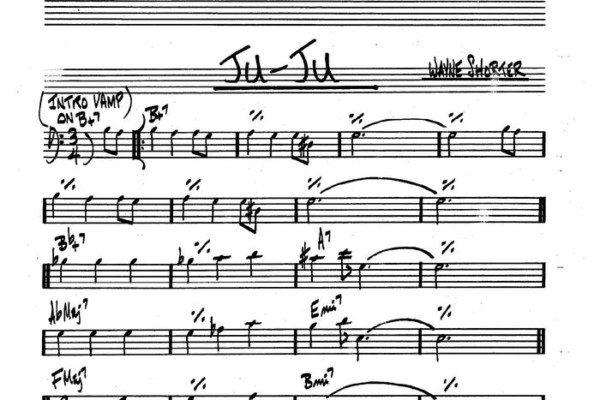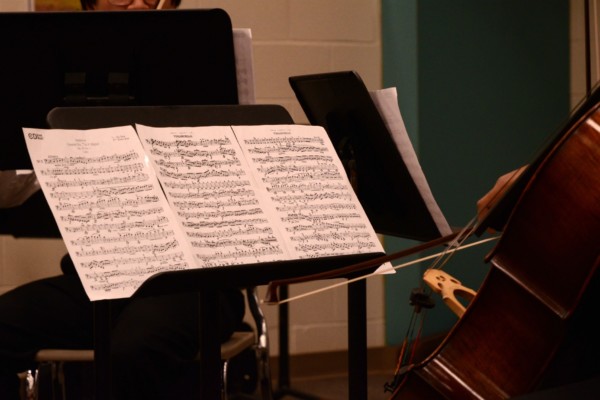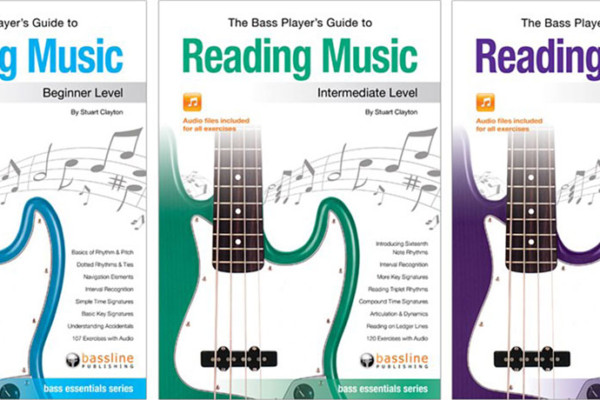Reading Archives
Keep It Groovy: Ways To Read Music – Notation, TAB, and Charts
In this episode of “Keep It Groovy,” Ryan Madora covers a variety of ways you might read music, from standard notation to TAB to various forms of shorthand or Nashville Number Charts.
How to Read a Lead Sheet
A reader asked Damian, “Can you explain how to read a lead sheet?” Damian offers up a in-depth column, complete with example charts and more.
Should I Study Music Written For Other Instruments?
Q: I was recently talking to a guitar player friend about feeling bored with practicing, and he recommended that I try to incorporate studies from different instruments into my routine. You’ve talked about using drum rudiment books to practice rhythm, and that totally makes sense, but what could I gain from studying a book on piano voicings or guitar stuff...
Preparing for a College Bass Audition
Q: I am thinking about entering a music program when I get to college. How should I prepare for playing bass in a college program? What will I need to know? How good do I need to be? A: Whenever I speak with younger players getting ready to enter a collegiate music program, my first instinct is usually to tell...
Reading Complex Rhythms
Q: I’ve only been playing bass about 1.5 years – still a newbie trying to learn the tricks of the trade. I mostly learn a song and play basic, but as of late, I’ve been learning to read. I’m not fluent in reading, but that’s not my problem. My problem is trying to play the rhythm of the notation. I...
Working with Printed Transcriptions
Studying transcriptions of masterful performances can provide a wealth of learning material for a musician. Musically speaking, we will gain the most by completing our own transcriptions, entirely by ear, of course. However, there is still a great deal to be gained by working from published transcriptions by other musicians, provided we approach them in the right way. Certainly there...
Learning Music: A Discussion on Bass Tab, Notation and Ears
Q: I have been interested in music all my life, but never played an instrument. Now that I’m retired, I have taken up playing the bass for the last six months from an instructor. I started out learning the notes on the bass itself and one song using notes. But since then, all of my learning has been by the...
Fitting It All Together: Reading, Listening and Playing Through the Changes
Last week, we wrapped up the series on Breaking Down Harmonic Substitutions. After that, I had a great moment with a student where there was a small distinction made that seemed to have a great impact in the student’s playing. An immediate impact. We were running the Wayne Shorter tune “Juju”, primarily because it has a ton of whole-tone scale...
Improving Troublesome Passages: Five Tips for Bass Players
Continuing our series of “Tips” columns, here’s one on breaking down troublesome musical passages. 1. Take it Slow Practicing technically difficult passages at slow tempi is nearly essential for mastery. Learning something at a slow tempo is learning it well. Doing so helps us avoid unconscious errors such as incorrect notes, fingerings, rhythms, errant string hits, etc., all of which...
Adjusting to Alternate Tunings on Bass
Q: As you may know, many bassists who play Urban Gospel music will detune their basses to a low B? or lower to achieve that extra low range. About a year ago, I decided to give detuning a try and detuned my 5-string bass to B?. It was strange at first, because I had to get used to the half-step...
The Bass Guitarist’s Guide to Reading Music
Stuart Clayton has authored three new books for Bassline Publishing’s Bass Essentials series, aimed at helping bassists master the fundamentals of reading music. The Bass Guitarist’s Guide to Reading Music includes beginner, intermediate and advanced levels, to allow bassists to choose the ones best suited to their current skill level. Each book features audio tracks, via downloads from the publisher’s...
Read Up! Part 2: How to Find and Work Through Books for Bass
Ah ha! You’ve reached the oh-so-exciting section of the music store where the possibilities seem endless and you get giddy just thinking about picking something up and taking it home… No, not the bass wall… the bookshelves! You feast your eyes on the “Teach Yourself Harmonica” manuals, the transcription books of Green Day guitar solos, and, everyone’s favorite, the 100...
